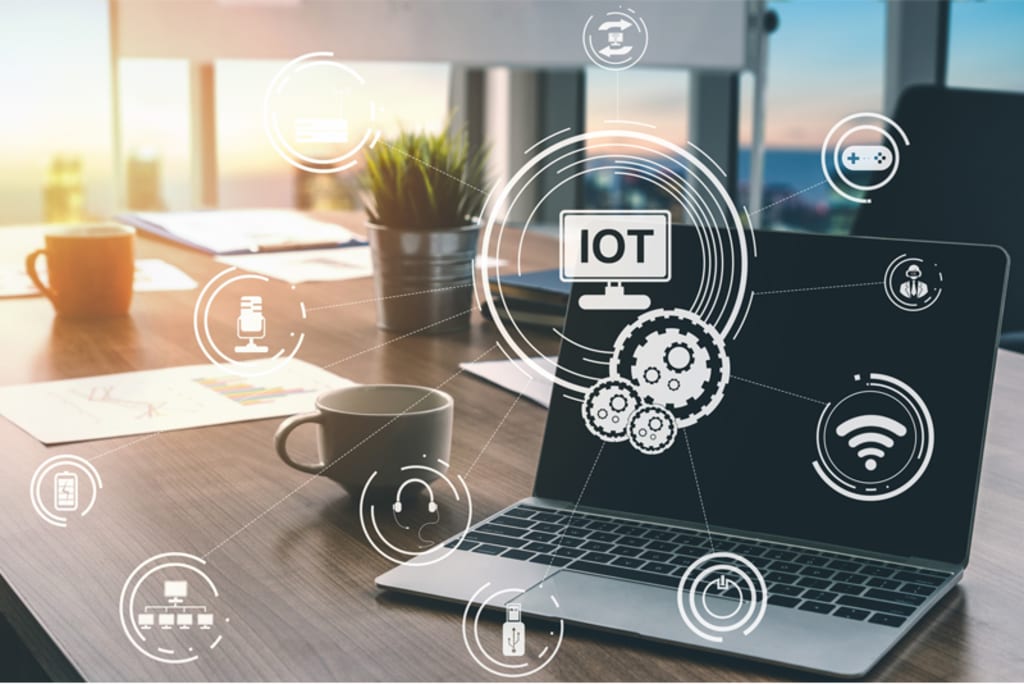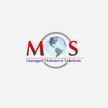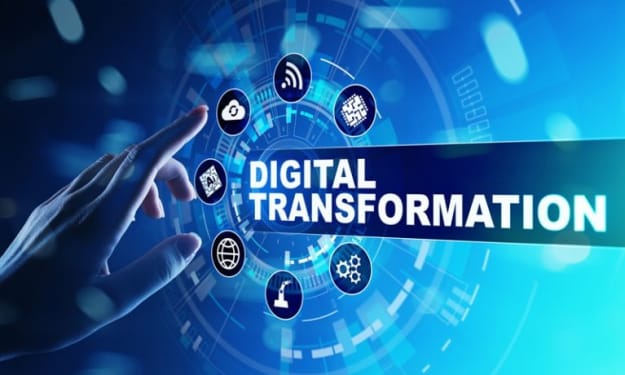Significant Role of IoT in Improving Business Productivity
The blog discusses the significant role that the Internet of Things (IoT) plays in improving business productivity.

Innovations in the field of technology and development of sophisticated devices has significantly transformed business processes. The Internet of Things (IoT) has managed to become a common name that now means more than simply establishing connections between devices and systems. Rather, it is opening up innovative opportunities for creating new products and services, which were previously considered impossible. IoT involves connecting any device to the Internet and to other devices that allows easy exchange of data. IoT is a huge network of connected things and people – all of which collect and share data about the way they use information. The technology offers endless opportunities for businesses to ensure that the companies can grow and alter the roots they grow on. Experts predict that more than half of new businesses will completely be run on IoT by the end of the 2020, making these processes completely automated and saving millions in increased productivity in the process. However, considering all these aspects, one important question that comes up is – how can IoT be practically and realistically implemented in businesses to make them work smarter? IoT devices are creating a huge amount of data, which requires a strategic approach to data entry to establish quality, reliable data throughout all operations and processes. Businesses need to implement innovative ways to handle data quickly and efficiently. Utilizing data processing services to handle data entry tasks has become a widespread practice.
The Role of Internet of Things (IoT) in Increasing Productivity
Nowadays, billions of devices around the world are connected to the internet and are constantly collecting and sharing data. The term IoT is not only used to refer to those devices that have an internet connection and includes more than computers, laptops and smartphones. IoT devices also comprise general objects equipped with chips to collect and communicate data over a network. According to research reports from McKinsey, 58 percent of companies who had gone into production with their IoT initiatives have witnessed at least a 5 percent increase in revenue, while 46 percent added they had witnessed a 5 percent decline in cost.
One of the best, important aspects of internet of things is that it does not change the methods of business operations, but make it more efficient with the implementation of automation. In fact, it has altered the way data is exchanged and collected to operate daily business processes. By implementing them in to everyday business processes, the internet of things can streamline routine tasks, fine tune operations and reduce overall costs. In fact, one report predicts the IoT could generate $1.2 trillion worldwide through improved productivity.
Here discussed are some important ways the Internet of Things (IoT) can help in transforming businesses today –
• Improving collaboration – Leveraging the possibilities of remote working is one of the top ways to improve employee productivity. Harnessing connected devices means that employees are no longer required to be physically present in the same space to collaborate. The use of portable devices and cloud-hosted software allows employees to manage their work efficiently from anywhere over shared networks. According to a Harvard Business Review survey, about 58 percent of respondents report that they have seen an increased collaboration within the business by implementing IoT based initiatives.
• More data and more opportunity – A Forbes Insights survey shows that businesses that are engaged in new ventures or expansion include preventive maintenance, automatic product upgrades or updates, and the tracking and tracing of assets. Sensors located in production systems, assembly lines, warehouses and vehicles produce data that help managers understand how operations are flowing; and those built into products monitor, and improve product performance. As large volumes of data flows in from data centers, remote sensors and IoT systems, this real-time information helps companies gain greater insight into the productivity and performance of their processes and thus enhances new opportunities for growth and innovation.
• Improving customer experience – More than half of the companies in the Forbes Insights survey, 56 percent, are investing in IoT to build customer experience. The data flowing from customer touch points and products/services they use can provide a real view of their experiences and satisfaction levels. With IoT real-time data, companies can respond quickly to any issues or requests that arise. For instance, in some airports IoT sensors are employed - particularly cameras - to provide better customer experiences for passengers waiting or passing through their facilities. Depending on flight arrivals and counts of foot traffic, airports can easily dispatch maintenance teams for opening gates, depending on flight arrivals.
• Inventory management and tracking – Several businesses depend on warehousing and storage that require real-time tracking and management of inventory. Tracking and monitoring requires a lot of manual work to ensure that no operation face time delay. With IoT enabled technologies, tracking of inventory can be done more efficiently and allows personnel to put their efforts into more productive tasks and cognitively demanding operations. Smart tags and sensors can also help keep track of inventory levels in real time and even track where an item is in a warehouse or store. This allows for more efficient stocking, which can improve your company’s cash flow. This is particularly beneficial for those running a complex business operation that can be very costly to shut down when unexpected issues arise.
• Data sharing – Data collection and exchange are an important part of any business. Smart devices are known to keep track of consumer behavior which helps businesses to function efficiently. This collection and exchange of information has completely changed the way data is handled. With IoT devices, the data is analyzed to work up with the business process and get an insight on what consumers actually want – track and record their usage patterns. The data can be interpreted, shared and collected to work with IoT technology to enhance the productivity and efficiency of the business.
• Greater efficiency – The expansion of IoT devices across various levels of the organization and its ecosystem means greater digitization of processes, which in turn helps in cost reduction. Smart offices utilize a number of connected devices that monitor, control, and manage various operations across a business. Using these devices to automate repetitive tasks (normally done by employees) can increase efficiency and free up their time to focus on more complex work. According to a prediction by eMarketer, by the end of 2020, artificial intelligence (AI) smart speaker assistants like Alexa and Siri will have a user base of 76.5 million in the United States alone. AI assistants can help streamline tasks throughout the day by linking with other devices to become part of the IoT ecosystem.
• Coordinate operations – IoT technology is capable of creating vast amount of data that businesses can utilize to improve or change the way of operation. For instance, smart sensors can be utilized to locate which rooms are full or being used at a certain time of the day.
• Enable cybersecurity – The rapid development of innovative technologies will also increase cybersecurity risks. Security will be a prime concern as more businesses and the general public use smart technology devices in their daily lives. IoT technology can protect your data and network from potential threats by making all your devices protected against hacking.
• Creating new business lines - IoT is creating new business opportunities. The technology platform not only allows companies to manufacture products but also monitor the performance of these products, all thanks to algorithms that offer predictive maintenance as required. In addition, this IoT data can be shared across an organization’s ecosystem of partners and customers, providing new paths to innovation in the form of new value-added services and continuous engagement.
• IoT expertise – As businesses continue to employ IoT technology into their processes, they will need to hire IoT experts. Implementing this innovative technology alone would not be sufficient. The more businesses start hiring IoT specialists, the more individuals will be willing to learn about advanced technology. Moreover, recruiting data analysts would prove to be add-on assistance to the expert’s team.
The Internet of Things (IoT) is a major driver of business transformation as it combines data and intelligence to deliver new ideas and ways of doing business. The development of IoT technology and the continuous evolution of artificial intelligence can open new doors for businesses to become more efficient. According to an estimate from the International Data Corporation (IDC), IoT spending will reach $1.2 trillion by the end of 2022. With this in mind, it is predicted that around $6 billion will flow into the creation of IoT solutions, including application development, device hardware, system integration, data storage, security, and connectivity. It is also estimated that those investments will generate $13 trillion by 2025. Amidst this development, platforms that let you view incoming data and take control of digital tools will continue to be the joint that holds IoT together, allowing users to take full advantage of the potential of connected devices.
With IoT advancing and offering a future full of promise, businesses need to set preparations in place to ensure they make the most of what it has to offer, and stay secure in doing so. With IoT advancing further, data entry outsourcing to a reliable data entry company becomes more relevant. This will help allocate useful data across various departments and utilize new data strategies optimally.
About the Creator
Managed Outsource Solutions
MOS (Managed Outsourced Solutions) is a leading business process outsourcing provider that supports small to large companies across the US with document conversion, document scanning, data processing, and data entry services.






Comments (1)
Thanks for sharing! By the way, I read great examples integrating internet of things business ideas successfully and actual for the 2021 year: https://www.cleveroad.com/blog/iot-ideas-for-business/